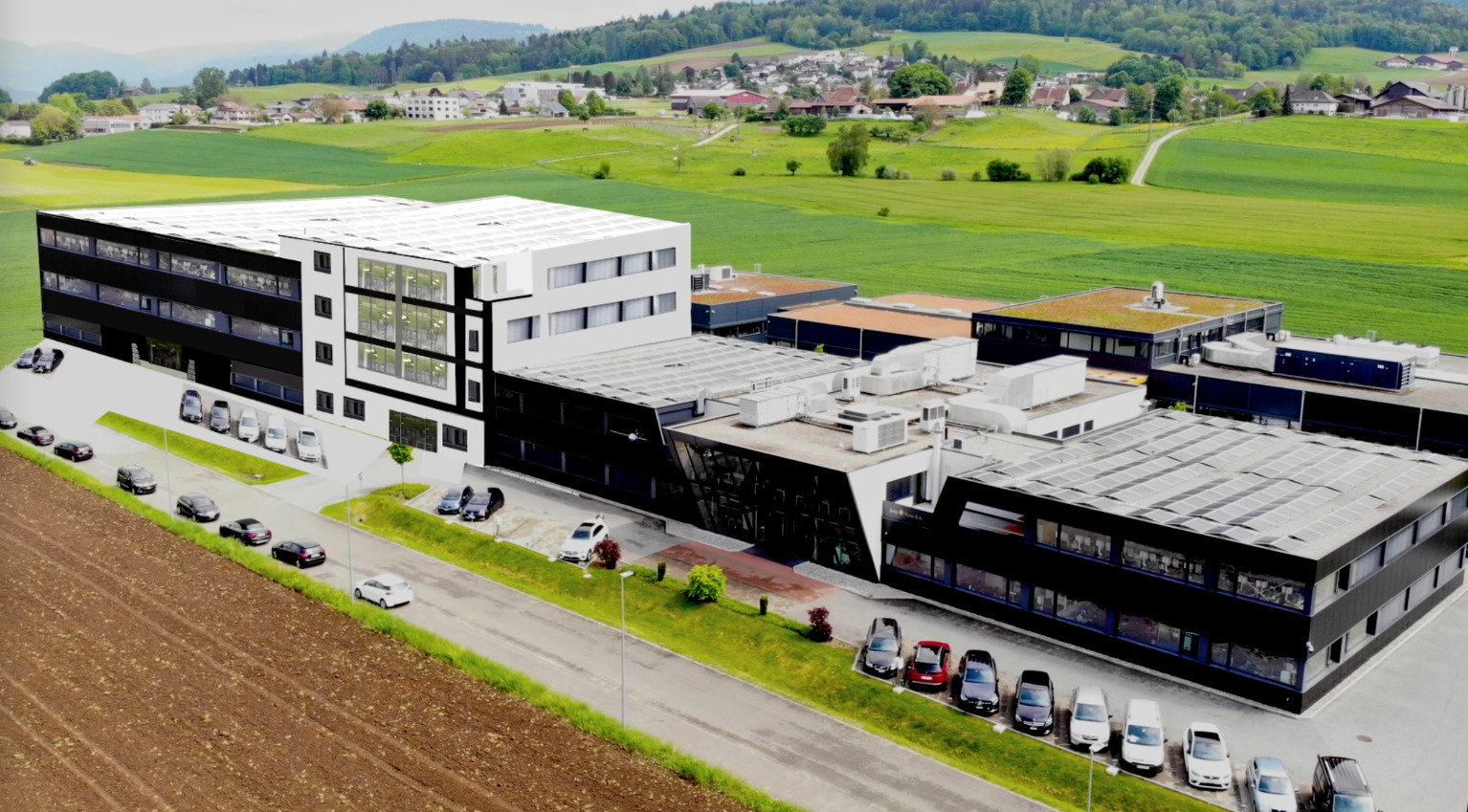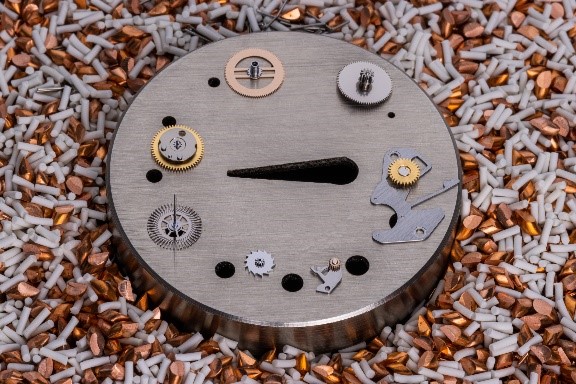Working behind the scenes on behalf of prestigious watch brands, the more than 140 employees at Joray & Wyss and Pivodel are the industry’s traditional historic wheel makers, producing up to 40 million parts per year!
Not only do they play their part in contributing to the mystique of Swiss-made watches – they keep the industry going! Well known for their legendary discretion, Joray & Wyss and Pivodel serve much of the high-end Swiss watchmaking sector. Back in 1948, just seven years after the company was founded 1941, the Journal Suisse d’Horlogerie wrote about this type of expertise: “Making these parts is very difficult, especially since the wheels and pinions are so tiny.” It was back then, in the midst of a global slump, that Willy Wyss and his brother-in-law Ariste Joray founded their eponymous company in Malleray, Switzerland.

Trade secrets, 250 dies and 1,000 holes
Almost never mentioned in the media, this industrial gem, whose roots lie in the manufacturing and machining of wheels and pinions, continues to maintain a few in-house trade secrets that ensure its output is the holy grail of precision, ensuring repeatability, consistency and reliability. In wheel and pinion manufacturing, the generally accepted tolerances for concentricity are 0.015 and 0.020 mm, However, Joray-Wyss achieves tolerances of less than 0.010 when drilling the centre hole, the final operation in manufacturing a wheel, even in large production runs.
“We drill the hole in the wheel last. We do not cut on a spindle,” explains Guy Sandoz, Director of Joray & Wyss. “Thanks to this process, we can offer our customers extremely precise concentricity. Tooling is also very important, as is our ability to achieve extremely precise adjustments. We have a collection of 250 dies totalling more than 1,000 interchangeable holes.”
Naturally, this basic production approach extends to wheel units and complete mechanisms. “Knowing how to assemble two components is an asset when it comes to creating a wheel unit comprising more than 8 or 10 components. We can count on the 11 skills and techniques mastered in-house, along with our ability to produce our own tools thanks to Pivodel, our mechanical workshop,” he continues, emphasising the logistical aspects and absolute trust that are the essential bond driving their success.

Premises set to double in size in 2025
The company has been based in Delémont since 2014 on premises that cover 3,000 m2, but it now plans to nearly double its size. Under the dynamic leadership of its energetic Chairman of the Board, Patrick Brandelet, supported by his two directors, Guy Sandoz for Joray & Wyss and Christophe Bron for Pivodel, the company plans to further build upon its 2019 expansion, the aim being to sustainably entrench its production facilities and machinery, which comprises both historic equipment and state-of-the-art units. The inauguration is planned for 2025 and work is already visibly underway.
In-house training
At any one time, multiple apprentices are on-site, including highly skilled mechanics and production technicians. Joray & Wyss plays its part in continuing the tradition of the 11 techniques mastered in-house: cutting, bar turning, pinion cutting, wheel cutting, pinion rolling, hole grinding, heat treatments and structural hardening, surface treatments (polishing, blocking, brushing, sanding), high-end finishes (line-drawn, strapping, moulding, bevelling) and, finally, assembly. They also share their knowledge, such as organising visits for teachers from nearby schools: “ This open day gives teachers from compulsory education an opportunity to better understand vocational training, since their pupils often ask them about apprenticeships and their prospects,” says Martial Courtet, the government minister responsible for training in the canton of Jura.
www.joray-wyss.ch
